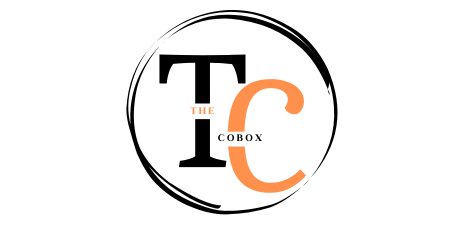Selling a home can feel like a daunting task. To make the process easier and faster, many homeowners have turned to innovative real estate companies like 72SOLD, known for their rapid home-selling approach. Offering promises of selling homes in as little as eight days, 72SOLD has built a reputation as a disruptive force in the real estate landscape. However, recent allegations and legal challenges surrounding the company, often referred to as the “72 sold lawsuit,” have raised concerns for homeowners, real estate agents, and property investors alike.
This article provides a detailed exploration of 72SOLD’s home-selling process, the emerging lawsuits against the company, and the lessons you can learn to make informed decisions about your property transactions.
Understanding 72SOLD’s Rapid Home Selling Process
For those new to 72SOLD, the company stands out by promising homeowners quick and streamlined property sales, unlike traditional real estate methods. Here’s how their process works and what sets it apart.
How 72SOLD Works
- Aggressive Marketing Tactics
72SOLD employs bold advertising strategies to create urgency among buyers. Their marketing focuses heavily on the appeal of rapid sales, pushing the idea that buyers may “miss out” if they don’t act immediately.
- Structured Timeline
Their method revolves around pre-scheduled buyer showings and near-immediate offers. This ensures sellers receive quick results, sometimes within just a week.
- Expert Agent Training
Agents affiliated with 72SOLD undergo specialized training to execute the company’s proven methodologies, making them familiar with tactics and strategies that facilitate speedy transactions.
Key Advantages of 72SOLD’s Approach
- Speed: Homes can sell faster than traditional market listings.
- Convenience: The structured process minimizes the need for open houses and excessive negotiations.
- Marketing Amplification: Leveraging 72SOLD’s aggressive reach often draws a larger pool of prospective buyers.
Potential Drawbacks
- Reduced Negotiation Time: While the rapid process is convenient, it leaves little room for sellers to negotiate higher offers.
- Limited Transparency: Some sellers have reported a lack of clarity regarding contract terms and expected outcomes, which has now become a focal point in the 72 sold lawsuit.
The Emergence of Lawsuits Against 72SOLD
Despite their success with many clients, legal allegations facing 72SOLD have highlighted potential flaws in their methods. By examining these lawsuits, we can understand the concerns and risks associated with this business model.
Overview of Legal Issues
Recent claims against 72SOLD have included complaints about misleading marketing tactics, lack of transparency in contracts, and accusations of pressure tactics to accept offers below market value. Interestingly, these accusations often stem from dissatisfied sellers believing they didn’t achieve fair market prices for their homes.
Reasons Behind the Lawsuits
- Misrepresentations in Advertising
Some lawsuits argue that 72SOLD’s promises of fast and high-value sales are overly optimistic or misleading, leading to unmet expectations.
- Lack of Clarity in Agreements
A common frustration lies in their contracts, which some claim are structured in a way that prioritizes speed over the seller’s financial interests.
- Pressure-Based Sales Techniques
Reported instances include sellers feeling coerced into accepting offers quickly, leaving them questioning whether they got the best possible deal.
Impact on Real Estate Agents, Homeowners, and Investors
The legal challenges against 72SOLD are not just a warning to skeptical homeowners but have also started reshaping perceptions in real estate communities.
Shifting Perceptions of 72SOLD
Real estate agents previously championing 72SOLD’s methodology are now caught in the crossfire of lawsuits. While many agents still value 72SOLD’s innovation, the allegations have prompted some to reassess the ethical implications of this approach.
Implications for Homeowners
For those considering 72SOLD, the lawsuits serve as a cautionary reminder to conduct thorough research. While the company has its merits, transparency and understanding contract terms are vital to avoid disappointing outcomes.
Considerations for Property Investors
For investors, these lawsuits amplify the need for due diligence—particularly when relying on companies promising quick transactions. Unintended legal or reputational risks may arise if pitfalls aren’t identified beforehand.
Lessons Learned and Moving Forward
Legal conflicts like the 72 sold lawsuit underscore the importance of navigating real estate deals carefully. Here are a few takeaways to help you protect your interests in future transactions.
Key Insights
- Due Diligence is Key
Be sure to read and fully understand contracts before signing with any real estate service provider, no matter how promising their results may seem.
- Ask Questions
Ask pointed questions about timelines, costs, and obligations during the process.
- Research Public Feedback
Look into reviews, testimonials, and even legal complaints to gain a balanced view of any company you intend to work with.
Recommendations for Sellers, Buyers, and Real Estate Professionals
- Sellers should compare multiple selling strategies to understand what delivers the best balance of speed, accessibility, and fairness.
- Buyers benefiting from expedited properties must remain conscious of legal and ethical considerations that could affect resale values later.
- Real estate agents might want to act as advocates for their clients by recommending solutions aligned with long-term goals rather than quick resolutions.
Making Smarter Real Estate Choices
Navigating the real estate market is always a blend of risk and reward, but the 72 sold lawsuit highlights the importance of taking an informed approach. Whether you’re considering using 72SOLD’s services or exploring alternative sales strategies, never underestimate the power of conducting due diligence and asking the right questions.
For more resources on smart property transactions, subscribe to our newsletter or connect with local real estate advisors who can guide you every step of the way.
Conclusion
Successfully navigating the real estate market requires knowledge, preparation, and the right support. By staying informed and taking proactive steps, you can make decisions that align with your goals and protect your interests. Remember, no matter which path you choose, doing your homework and seeking expert advice can make all the difference in achieving a smooth and rewarding transaction. Take the time to plan wisely, and your efforts will pay off in the long run.
Frequently Asked Questions
What is the 72 sold lawsuit about?
The 72 sold lawsuit involves legal claims against the company, with accusations ranging from misleading advertising to contractual unfairness and coercive sales tactics.
Is 72SOLD still a reliable real estate company despite the lawsuits?
While 72SOLD has helped many sellers successfully, potential clients should evaluate the lawsuits, consider reviews, and ensure clarity in agreements before proceeding.
How does 72SOLD’s process differ from traditional real estate methods?
72SOLD’s methodology focuses on marketing urgency and structured showings to expedite sales. This is unlike traditional real estate methods that allow more time for offers and negotiation.
What should property owners keep in mind when using 72SOLD?
Owners using 72SOLD should carefully review contract terms, understand potential drawbacks like reduced negotiation, and assess whether quick sales fit their goals.
How can real estate agents adapt to challenges highlighted by the 72 sold lawsuit?
Agents can prioritize transparency, advocate for sellers, and incorporate ethical sales practices that add value without compromising trust.










